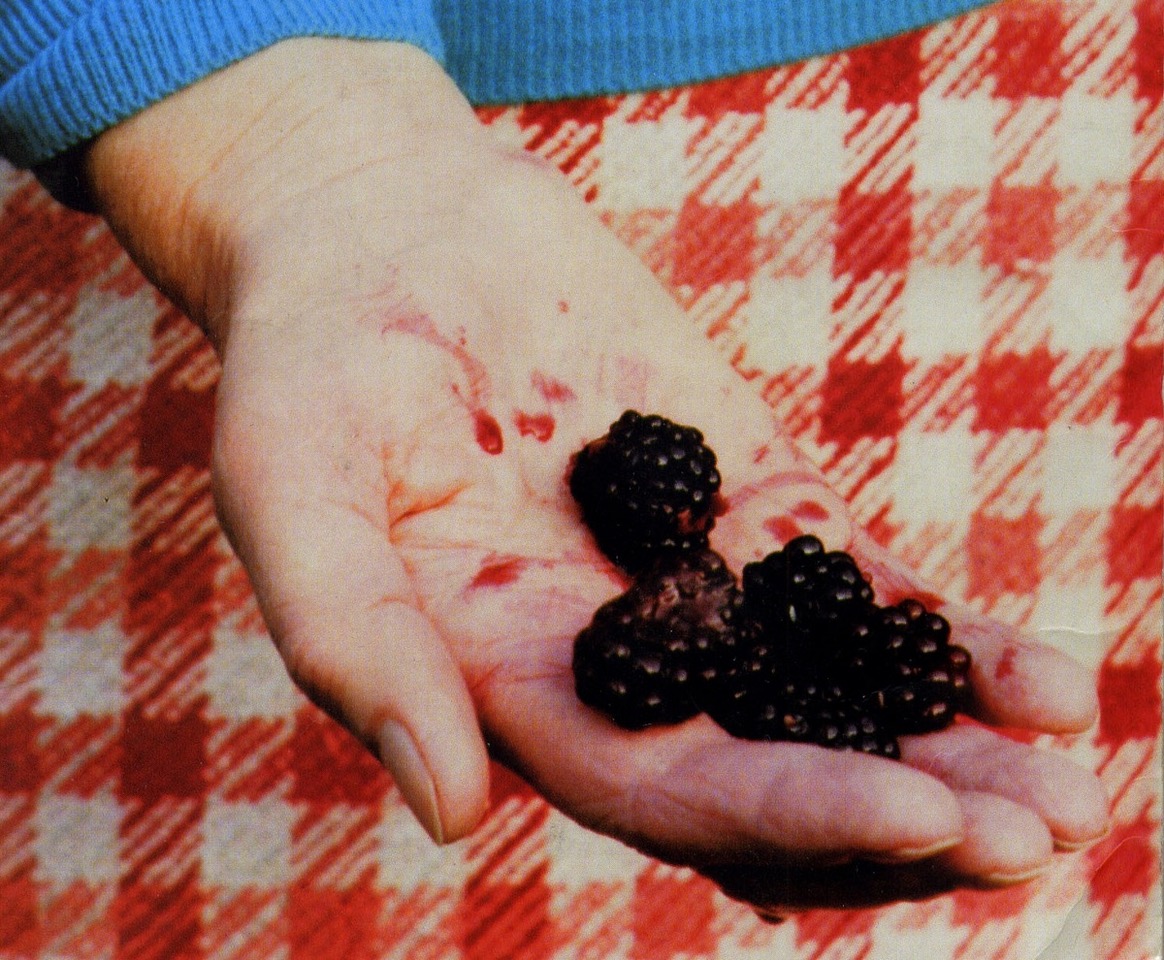Writing for show at Brewery Arts Centre, Cirencester.
This exhibition involved the local community who recorded their written responses to their experiences and memories of picking or eating or cooking blackberries – nearly everyone seems to have a memory.
My mother’s voice was at the centre of my life as were my childhood friends.
The blackberry fruit although still wonderful – miraculous, fierce and sweet – it is the dream of them that has nourished this show.
My mum was a talented dressmaker and knitter and kitted out her four children in sensible but stylish clothes. She made aprons for us and in the summer was happy to let us roam the hot neighbourhood streets in suburban London.
At ten, I wore a wide skirt with no top or shoes – bare feet usually and we would be out for hours coming back with containers full of berries. I had the freedom of the streets and exhilaration of nothing much to do, except roam for blackberries.
One dusty afternoon, a woman in smart shoes called me and my friend Diane “dirty gypsy children”. I knew she was saying something bad and it confused me and I suddenly felt self-concious.
I am no longer roaming the streets picking blackberries in south London and scratching myself on sharp wire and thorns but I have not forgotten the screech of the rail tracks and the rattle of the wooden slats on the bridge over the railway line.
The bridge was the best place to pick the berries but also the most dangerous. The brambles lurked dark and tempting and just out of reach.
Now, in the studio I try to grasp those transitory memory – stained cloth, sewn stitches, discarded containers, maggots, spit and blood.
I am not sure where the pies and jams went, for me it was always outside – grandma trying to find her dog and mum shouting for us to come in as it got dark.
Sarah Palmer. Sydenham Park. London.
